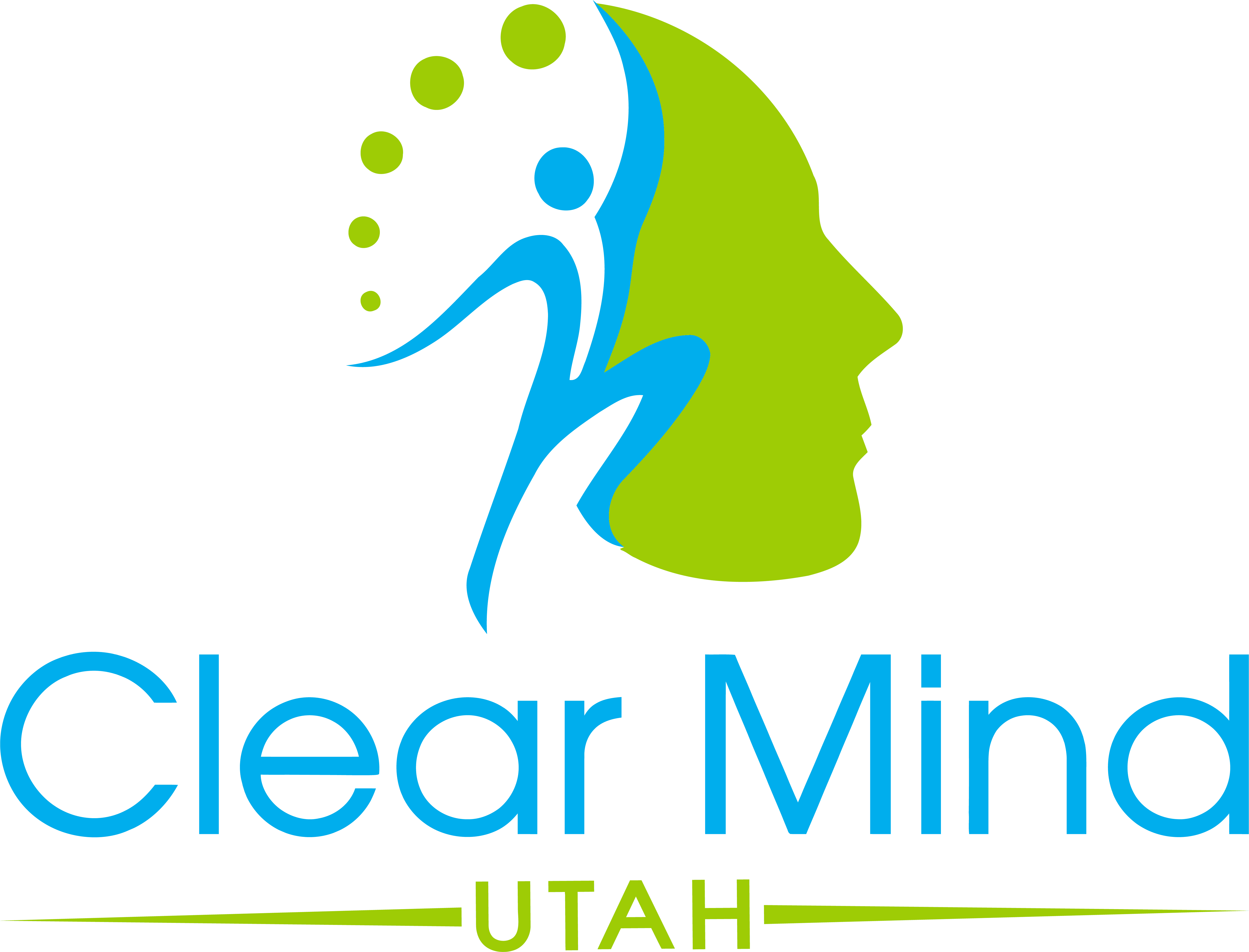Are you tired of feeling anxious all the time? Do you want a natural solution that doesn’t involve medication? Stimulating the vagus nerve might be the answer you’ve been looking for. In this article, we will explore what the vagus nerve is, how it works, and the different ways you can stimulate it to relieve anxiety. I like to call it the magic nerve.
What is the Vagus Nerve?
The vagus nerve is one of the longest nerves in the body, running from the brainstem down to the abdomen. It is responsible for regulating many bodily functions, such as heart rate, digestion, and breathing. Watch this 2-minute video for the basics of the vagus nerve. The vagus nerve has two main branches: the sensory and motor branches.
Sensory Branch
The vagus nerve is like a superhero that travels all around your body, keeping tabs on everything that’s going on. And just like any good superhero, it has different superpowers for different situations.
The sensory branch of the vagus nerve is one of those superpowers. It’s like a detective that gathers information about what’s happening in your body and sends it back to your brain.
For example, have you ever eaten something really spicy and felt a burning sensation in your mouth? That’s the sensory branch at work, sending a message to your brain that something spicy is going on in your mouth.
Or maybe you’ve felt your heart racing when you’re nervous or scared. Again, that’s the sensory branch doing its job, letting your brain know that your heart is working overtime.
But it’s not just about the big things. The sensory branch also helps you pick up on subtle sensations, like the feeling of a cool breeze on your skin or the sound of a bird chirping in the distance.
The sensory branch is like a superhero detective that helps your brain stay in touch with everything that’s happening in your body. Let’s discuss the Motor Branch now.
Motor Branch
So, the motor branch of the vagus nerve is like a bossy boss, controlling all the movements and actions of your body. It’s like the conductor of an orchestra, telling all the instruments what to do and when to do it.
For example, have you ever tried to swallow a big piece of food and felt your throat muscles working hard to get it down? That’s the motor branch of the vagus nerve flexing its muscles and telling your throat to get moving. And when you speak or sing, the motor branch is responsible for controlling the muscles in your vocal cords, making sure you hit all the right notes.
But that’s not all – the motor branch also helps with other important bodily functions, like breathing and digestion. It’s like a traffic cop directing the flow of traffic in your body, making sure everything runs smoothly.
The motor branch is like a bossy conductor, telling all the muscles in your body what to do and when to do it.
Both chambers working together make the Vagus Nerve almost magical!
How Does the Vagus Nerve Work?
The vagus nerve plays a vital role in the parasympathetic nervous system, which is responsible for the body’s rest and digest response. When the body is in a state of relaxation, the parasympathetic nervous system is activated, and the vagus nerve sends signals to slow down the heart rate, increase digestive function, and decrease anxiety. On the other hand, when the body is in a state of stress, the sympathetic nervous system is activated, which causes the opposite effects.
How to Stimulate the Vagus Nerve to Relieve Anxiety
There are many different ways to stimulate the vagus nerve to relieve anxiety. Here are some of the most effective methods:
Deep Breathing Exercises
Deep breathing exercises can help stimulate the vagus nerve by activating the parasympathetic nervous system. When you take slow, deep breaths, your heart rate slows down, and your body enters a state of relaxation.
Meditation and Mindfulness
Meditation and mindfulness practices are effective in reducing anxiety and depression. These practices can help stimulate the vagus nerve by promoting relaxation and reducing stress.
Cold Water Immersion
Cold water immersion, such as taking a cold shower or splashing cold water on your face, can stimulate the vagus nerve by activating the dive reflex. The dive reflex is a natural response that occurs when the body is exposed to cold water, which causes a decrease in heart rate and blood pressure.
Massage Therapy
Massage therapy can stimulate the vagus nerve by activating the parasympathetic nervous system. When you receive a massage, your body enters a state of relaxation, which can help reduce anxiety and stress.
Exercise
Regular exercise can help stimulate the vagus nerve by promoting relaxation and reducing stress. Exercise is an effective way to reduce anxiety and depression.
Yoga
Yoga is a form of exercise that combines physical movement with breathing exercises and meditation. Yoga is effective in reducing anxiety and stress, and it can help stimulate the vagus nerve by promoting relaxation.
IASIS MCN
IASIS MCN is a next-generation form of neurofeedback that we perform in our clinic. It stimulates the brain with microcurrent impulses that instruct the brain to produce the “feel good” neurotransmitters of GABA, serotonin, endorphins, and dopamine. These all play a role in how we feel and deal with anxiety and depression. It’s a more natural way to deal with anxiety and can decrease the need for medications (Check out these reads: What is MCN? / Is MCN Effective? / Is MCN Safe?).
Conclusion
Stimulating the vagus nerve is a natural and effective way to relieve anxiety. There are many different methods you can use to stimulate the vagus nerve, such as deep breathing exercises, meditation and mindfulness, cold water immersion, massage therapy, exercise, yoga, and IASIS MCN. By incorporating these methods into your daily routine, you can reduce your anxiety and improve your overall well-being.
Call or text us at 385-304-4434 to find out more about IASIS MCN and how it might help you.
FAQs
- What is the vagus nerve, and how does it work?
The vagus nerve is one of the longest nerves in the body, running from the brainstem down to the abdomen. It is responsible for regulating many bodily functions, such as heart rate, digestion, and breathing. The vagus nerve has two main branches: the sensory and motor branches. It plays a vital role in the parasympathetic nervous system, which is responsible for the body’s rest and digest response. When the body is in a state of relaxation, the parasympathetic nervous system is activated, and the vagus nerve sends signals to slow down the heart rate, increase digestive function, and decrease anxiety.
- What are some of the symptoms of anxiety?
Symptoms of anxiety can vary from person to person, but some common ones include excessive worry, restlessness, irritability, fatigue, difficulty concentrating, muscle tension, and sleep disturbances. Anxiety can also cause physical symptoms such as sweating, trembling, and rapid heartbeat.
- How can deep breathing exercises help relieve anxiety?
Deep breathing exercises can help relieve anxiety by activating the parasympathetic nervous system. When you take slow, deep breaths, your heart rate slows down, and your body enters a state of relaxation. This can help reduce feelings of anxiety and promote a sense of calmness.
- Can massage therapy help reduce anxiety?
Yes, massage therapy can help reduce anxiety by activating the parasympathetic nervous system. When you receive a massage, your body enters a state of relaxation, which can help reduce anxiety and stress. Massage therapy has also been shown to be effective in reducing muscle tension and promoting better sleep (read more about the negative effects lack of sleep has on the vagus nerve).
- How often should I practice yoga to see a reduction in anxiety symptoms?
The frequency of yoga practice required to see a reduction in anxiety symptoms can vary from person to person. Some people may see benefits from practicing yoga once or twice a week, while others may need to practice more frequently. It is recommended to practice yoga consistently and regularly to experience the full benefits it can provide.






